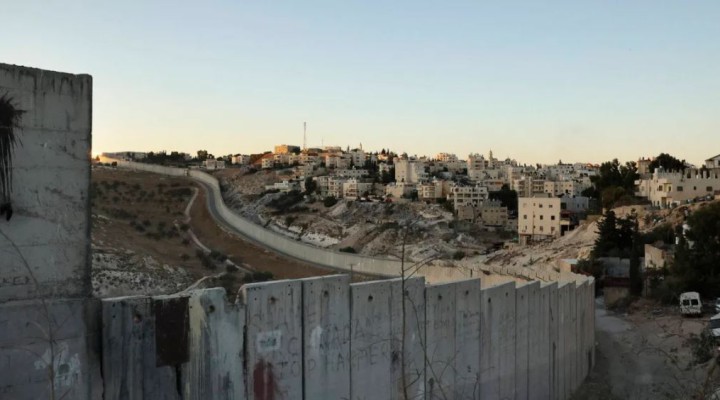Beneath the rhetorical veneer of Abu Dis

In 2019, when the Trump administration revealed the so-called “Deal of the Century”, a hypothetical capital of Palestine in the town of Abu Dis was revealed as the alternative to the Palestinian people’s claim on Jerusalem. Israel had laid the groundwork for the announcement with its earlier unilateral declaration that Jerusalem remains its “undivided” capital.
The commotion regarding Jerusalem had more to do with global ridicule of former US President Donald Trump, than the political rights of the Palestinian people. With annexation on the table, what were the odds that Palestinians would or will ever retain any land in any case, let alone rights? Abu Dis was always just a rhetorical veneer covering the real issues at stake, including the fact that Israel would not relinquish its stance over Jerusalem, just as it will continue to usurp further Palestinian territory, including Abu Dis.
The Times of Israel reported that the Jerusalem District Planning and Building Committee gave an initial approval for 400 new housing units to be built within Abu Dis, expanding a small Jewish settler enclave within the town. Strategically, Jewish settlements in Abu Dis will link existing settlements in the vicinity, thus providing territorial contiguity for Israel while further eroding the hypothetical Palestinian state, as well as the remote possibility of its creation.
Israeli media stated that the Jewish settlement building in Abu Dis would “kill any chances of the town being regarded as a suitable home for a Palestinian capital.” That argument is flawed. Palestinians have already rejected the idea of Abu Dis as their capital. What the media should have stated was that Jewish settlements in Abu Dis will contribute to the territorial fragmentation of what remains of Palestinian land. The purported concern of Palestinians losing out on a hypothetical capital city is intended to cover the far more relevant and serious settler-colonial expansion of the occupation state.
Ateret Kohanim, a far right-wing organisation supported by US benefactors, owns the buildings which currently house ten Jewish settler families in Abu Dis. The late Irving Moskowitz, a US physician of Polish descent, had helped with the purchase of the buildings, and also contributed financially to establishing the presence of Jewish settlers in Palestinian neighbourhoods close to East Jerusalem. In 2015, it was reported that Moskowitz used shell companies to conceal his acquisition of property in the occupied West Bank for use as a future Jewish settlement. All of Israel’s settlements, and the settlers who live in them, are illegal under international law, of course.
The hypothetical capital city, therefore, is far removed from the narrative that is currently unfolding. Palestinians have faced a stranglehold for decades in which international involvement in the colonisation of their land, in this case by US Zionist millionaires, shows no signs of abating. Abu Dis is a recent example of colonial complicity, whereby far-right organisations with ample funding and extremist ideologies are finding that the current extreme far-right Israeli government provides an opportunity for expanding into Palestinian territory, even as the Biden administration keeps issuing its futile warnings against further settlement expansion.
Ateret Kohanim defended the settlement plans: “The significance of establishing and developing the neighbourhood is to create a shield for Jerusalem against Palestinian ambitions.” What shield, and what ambitions, when Palestinians face insurmountable challenges as a result of forced displacement? Israel’s security narrative is once again utilised by settler organisations. At the opposite end of the spectrum, the UN stays silent about this web of colonial complicity that keeps depriving Palestinians of their land. Any relevance Abu Dis might have had was only in relation to the Trump administration, demonstrating that the international community has already excised Palestinian relevance from Palestinian land.
https://www.middleeastmonitor.com/20230523-beneath-the-rhetorical-veneer-of-abu-dis/
 TheAltWorld
TheAltWorld 
0 thoughts on “Beneath the rhetorical veneer of Abu Dis”